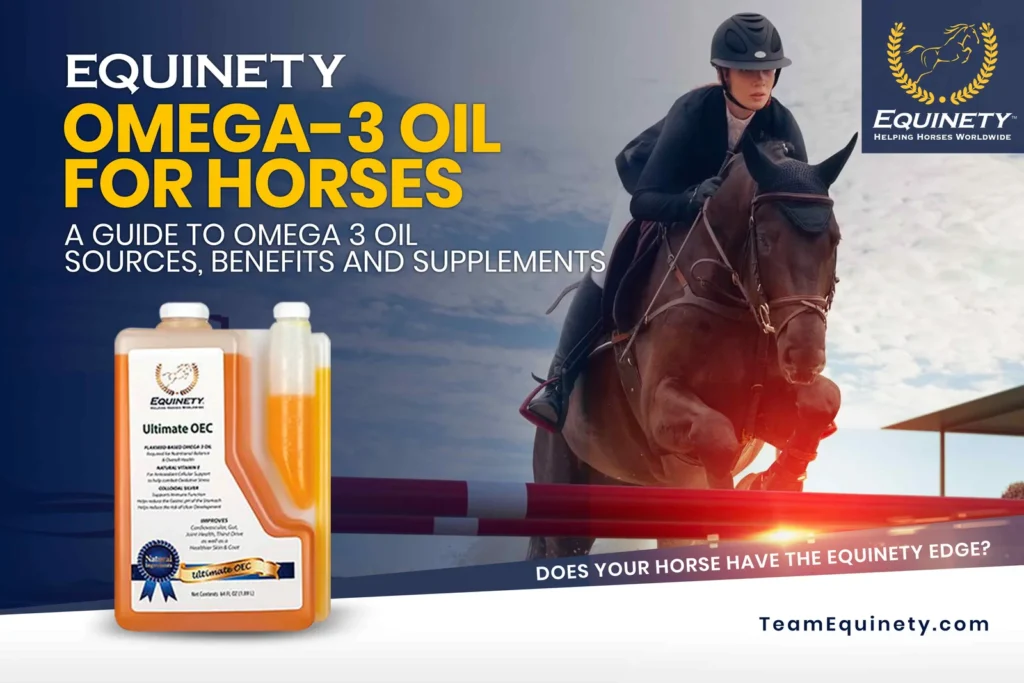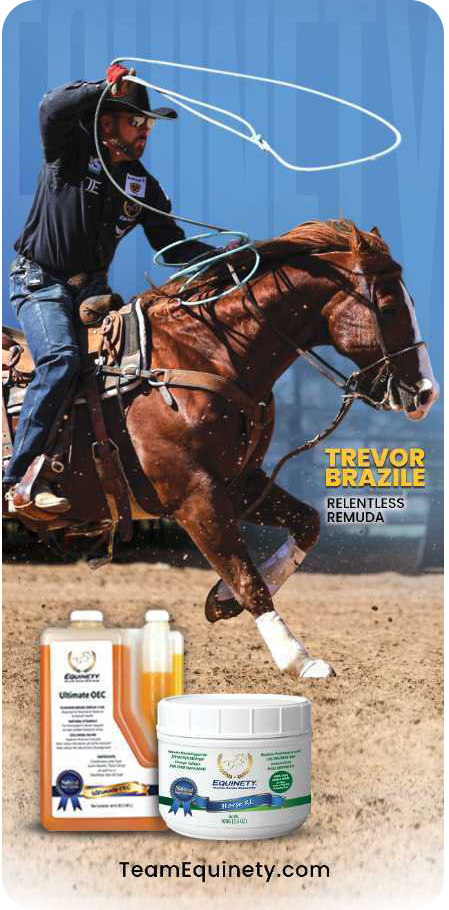Navigating the realm of equine nutrition can be a daunting task, especially when faced with the choice between omega-3 oil and omega-6 oil supplements for your horse. Understanding the fundamental differences between these two essential fatty acids is crucial in making an informed decision. In this comprehensive blog post, we will delve into the Omega-3 Oil vs. Omega-6 Oil debate, equipping you with the knowledge to select the perfect supplement for your equine partner.
1. Omega-3 Oil: The Benefits for Horses:
Omega-3 oil is renowned for its array of health benefits, making it an attractive addition to your horse’s diet. From promoting cardiovascular health and supporting a robust inflammatory response to enhancing joint mobility and fortifying the immune system, omega-3 oil plays a vital role in maintaining overall equine well-being.
2. Omega-6 Oil: The Pros and Cons for Horses:
While omega-6 oil is also an essential fatty acid, it is important to understand its impact on equine health. Omega-6 oil is involved in various bodily functions, including immune response and hormone production. However, an excessive intake of omega-6 oil can lead to an imbalance with omega-3 fatty acids, potentially promoting inflammation and other health concerns.
3. Striking the Right Balance: The Omega-3 to Omega-6 Ratio:
Achieving a proper balance between omega-3 and omega-6 fatty acids is crucial for equine health. Ideally, horses should have a diet that maintains a ratio of omega-6 to omega-3 fatty acids between 4:1 and 10:1. However, modern equine diets often contain higher levels of omega-6 fatty acids, necessitating the need for omega-3 supplementation to restore balance.
4. Choosing the Right Supplement:
When selecting an omega-3 oil supplement for your horse, consider factors such as quality, purity, and sourcing. Look for reputable brands that provide third-party testing and adhere to strict quality standards. Additionally, consult with your veterinarian or equine nutritionist to determine the most suitable supplement based on your horse’s specific needs.
5. Natural Sources of Omega-3 and Omega-6:
While supplements are a convenient option, natural sources of omega-3 and omega-6 fatty acids can also be incorporated into your horse’s diet. Fresh grasses and forage are rich in these essential fatty acids, making access to pasture a valuable component of equine nutrition. Balancing natural sources with supplements can help achieve the desired omega-3 to omega-6 ratio.
6. Dosage Guidelines for Omega-3 Oil:
Dosage guidelines for omega-3 oil can vary based on your horse’s specific needs. It’s recommended to start with a lower dosage and gradually increase it over time. Consult with your veterinarian to determine the optimal dosage for your horse, considering factors such as size, activity level, and overall health.
7. Monitoring and Adjusting Omega 3 Oil in Horse’s Diet:
Once you have introduced omega-3 oil into your horse’s diet, closely monitor their response. Observe any improvements in coat condition, joint mobility, or overall well-being. Regular veterinary check-ups can help assess the impact of the supplement and make any necessary adjustments to ensure your horse’s optimal health.
Understanding the differences between omega-3 and omega-6 oils is vital in selecting the right supplement for your horse. While omega-3 oil offers a myriad of benefits, maintaining a proper balance with omega-6 fatty acids is equally important. By choosing high-quality supplements, considering natural sources, and working closely with your veterinarian, you can provide your equine companion with the ideal fatty acid ratio for optimal health and well-being.
Why Equinety Ulimate OEC is the Best Omega 3 and Omega 6 Supplements. What are the ingredients and benefits of using this horse supplement?
Equinety Ultimate OEC is the combination of omega 3 and omega 6 with the perfect ratio your horse may need. The omega 3 fatty acids in the supplement come from flaxseed oil, while the omega 6 fatty acids come from canola oil. The supplement also contains vitamin E and colloidal silver.
Omega 3 and omega 6 fatty acids are essential fatty acids, which means that horses cannot produce them on their own and must get them from their diet. These fatty acids play a variety of important roles in the body, including:
- Maintaining healthy skin and coat
- Reducing inflammation
- Improving joint health
- Boosting the immune system
- Supporting heart health
Equinety Ultimate OEC works by providing horses with a concentrated source of omega-3 and omega-6 fatty acids. This can help to improve their overall health and well-being.
The ingredients in Equinety Ultimate OEC are:
- Omega 3 Fatty Acids 23,000 mg
- Omega 6 Fatty Acids 4,200mg
- Eicosapentaenoic Acid (EPA) 990 mg
- Docosahexaenoic (DHA) 660 mg
- Vitamin E (as tocopherols) 1000 IU
- Colloidal Silver 4.84 mg
- Flaxseed Oil, Fish Oil (Anchovy), Natural Flavor
The supplement is available in a liquid form and is typically administered by mixing it with the horse’s feed. The recommended dosage is 1 ounce per 1,000 pounds of body weight.
Equinety Ultimate OEC is a safe and effective supplement for horses. It is important to note that the supplement should not be used in horses that are allergic to flaxseed or canola oil.
Here are some of the benefits of Equinety Ultimate OEC:
- Improves skin and coat health
- Reduces inflammation
- Improves joint health
- Boosts the immune system
- Supports heart health
If you are considering using Equinety Ultimate OEC for your horse, it is important to talk to your veterinarian first. They can help you determine if the supplement is right for your horse and can give you specific instructions on how to administer it.








